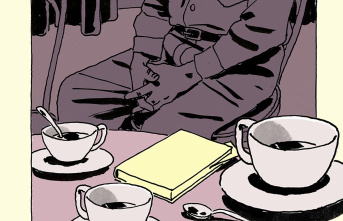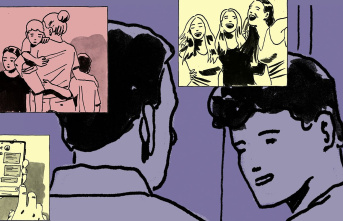JERUSALEM -- Israel’s justice minister has said that he will grant the government one last chance to approve a controversial bill that extends legal protections to West Bank residents in an effort to preserve the fragmented coalition.
Gideon Saar, Justice Minister, stated in a series TV interviews that he would resubmit bill next Sunday after it failed to pass earlier in the week. The bill was defeated by several coalition members.
Saar called upon his coalition members to either get along or leave the government, a scenario which would most likely lead to a fifth election within three years.
He said that as long as they don’t make order within their own party, as long as we are concerned they aren’t part of the alliance," he said to Israel's Kan public broadcaster late on Tuesday.
The bill was seen by the coalition of parties from all political spectrums as a significant test. Its defeat raised doubts about the government's viability long-term.
Israeli media reported that renegade coalition members who did not support the bill were being forced to change their mind or resign in order to make room for those who would vote for it.
For decades, emergency regulations have been in place. This has created a separate legal system to protect Jewish settlers in West Bank. They are subject to parts of Israeli law, even though they live on occupied territory. This is in contrast to Palestinians who live under military rule now in its sixth decade.
Jewish settlers in the area could lose their legal status if the bill is not passed again. Critics include the Palestinians and three well-respected human rights groups. Israel denies that the situation amounts to apartheid.
The coalition includes both nationalist parties who are strong supporters and dovish parties which oppose the settlements. This alliance, which includes an Arab party, the Islamist Ra'am (whose members abstained from or opposed Monday's bill), is the first in Israel's recent history.
Saar, who is the leader of a small prosettler party in India, has criticized Ra'am a lot. He said that Ra'am had not behaved like an independent party and would be paying a heavy price.
Ra'am's members did not indicate if they would change their voting habits. Ghaida Rinawie Zabi, another coalition member, voted against Ra'am's bill. She said Wednesday that she was still opposed.
The coalition was created one year ago and consists of eight parties who have little in common besides their animosity towards former Prime Minister Benjamin Netanyahu. He is currently the opposition leader. After several coalition defections parliament is now evenly divided between the opposition and coalition 60-60.
Monday's vote was less about the status and government of the settlers. In an effort to speed up the fall of the government, the opposition is dominated largely by settlers' allies. However, they voted against the legislation. The bill was supported by Dovish members of government, who voted for it despite their opposition towards the settlements.
The government will not collapse if the bill fails next week. However, it will be difficult for the coalition to come together and the government's days could be over.
Yohanan Plesner (president of the Israel Democracy Institute), an Israeli think tank, stated that "the government would find it very difficult now to manage the ongoing affairs state, let alone initiate and instigate major reforms." It's a missing government. This is a very difficult situation for the government.












